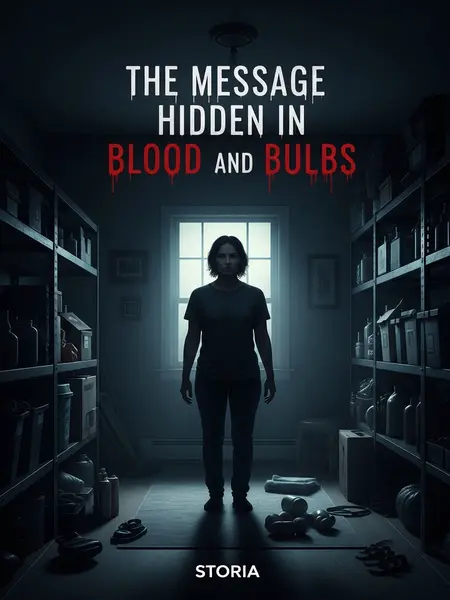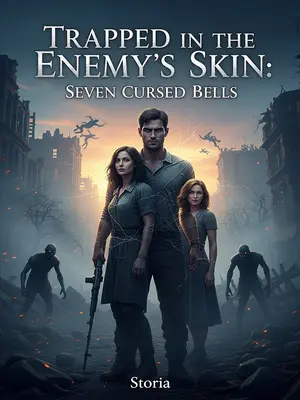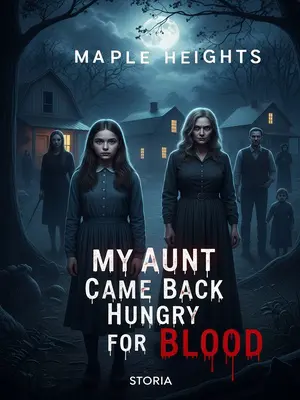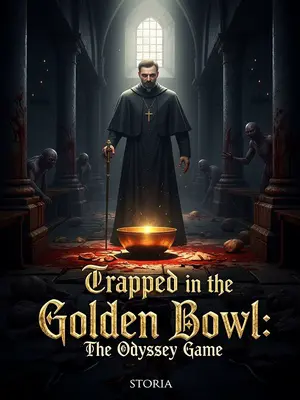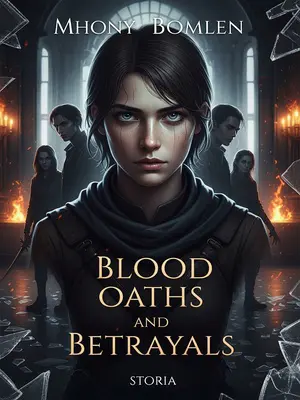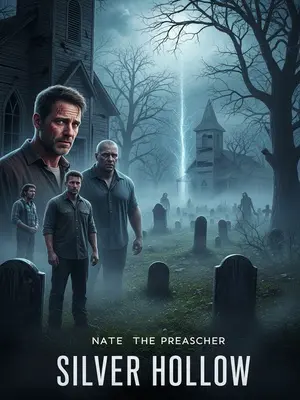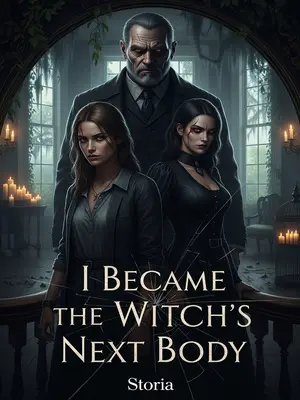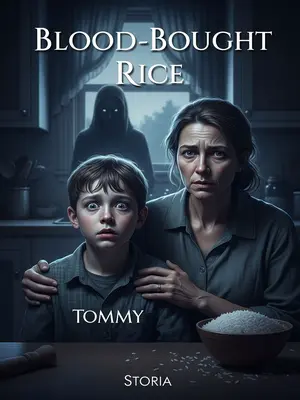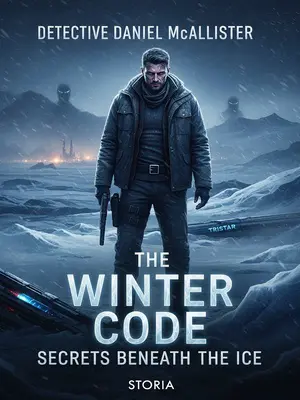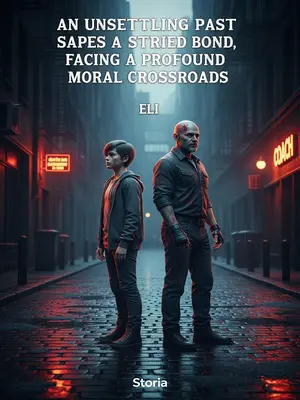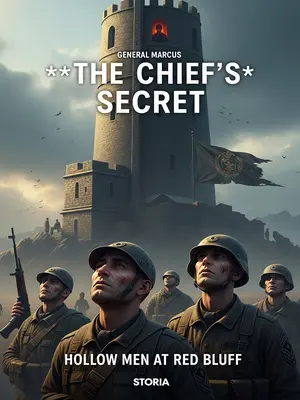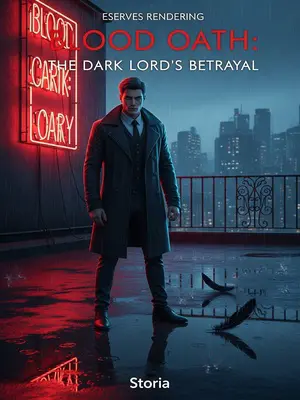Chapter 1: The Ten-Dollar Haunting
It was a Saturday morning, cartoons humming in the background, when my dad pressed a crumpled ten-dollar bill into my palm. The bill was soft from years of use, corners bent and edges frayed. To ten-year-old me, it felt like a ticket to freedom—candy bars, comic books, maybe a movie rental later that night.
He told me he’d found it on the street. His tone was easy, but there was a flicker in his eyes—something between pride and unease. Maybe he felt lucky, or maybe just a twinge of guilt for not earning it. I was just glad for the cash. Found money was magic to me.
I still remember running my thumb over the back of the bill, tracing the blocky, desperate letters written in thick black marker. The ink was just raised enough that I could feel it. It read: “There’s a scam ring on the fifth floor, help.”
I showed the bill to my dad. He smiled—a little too quick—and said, “Who knows how many people have used this bill? Maybe whoever wrote that already got rescued.” He ruffled my hair and glanced at the window, his eyes darting away as if hoping I’d just let it go. The TV flickered with the evening news, coloring the kitchen linoleum pale and cold.
But I was already thinking about what I’d buy at the corner store. The grown-up world, with its mysteries and dangers, never got past my wall of candy wrappers and comic books. I kept the big, messy world out with candy wrappers and comic books.
Then the news cut through the background noise: “A man accidentally entered a scam operation, was beaten to death, and then dismembered.”
The living room went quiet. My dad’s face drained of color. The remote slipped from his grip, clattering on the linoleum, and the sound made me flinch. The story showed police tape outside a run-down apartment—the kind we passed every day without a second thought.
I looked at my dad. He was staring at the TV, jaw clenched, knuckles white around the arm of the couch. He seemed smaller than I’d ever seen him, as if that ten-dollar bill had suddenly become a weight he couldn’t carry.
I asked what was wrong. He snapped, “Mind your own business,” then slammed the door and left. The echo of it rattled down the hall, and I just stood there, clutching the bill, not sure if I should follow or stay. Grown-ups weren’t supposed to act like that. The confusion stuck to me, sticky and heavy.
I couldn’t make sense of it, only that something was very wrong. The silence pressed in, the TV murmuring to itself. I tucked the bill into my piggy bank, trying to push the feeling away with cartoons, but the unease stuck around.
On New Year’s Eve, during our family dinner, everything came out. Paper hats askew, gravy boats passed between cousins, the clink of cheap wine glasses—until Dad’s voice cut through it all. He drank too much, then suddenly broke down, tears spilling as he talked about the ten-dollar bill. The laughter died. He told everyone about finding it, about the message. Even the little kids stopped fidgeting. The adults exchanged worried looks.
When he named the intersection where he’d found the money, a hush fell over the table. It was only a few blocks from Grandma’s old place. The realization hit—someone’s desperate plea had landed right here, and we’d all missed it.
Aunt Lisa gasped, napkin crumpled in her fist. Uncle Mike set down his fork. Even my older cousins looked shaken. The idea that a life-and-death message had slipped through our hands—and gone unanswered—hung over us like a storm cloud.
Dad broke down, shoulders shaking, mumbling over and over that it was his fault, that he could’ve done something. My uncles tried to comfort him, my aunts whispered reassurances, but he just kept crying. I stood off to the side, stunned and lost, watching the cocoa in my mug grow cold.
And all I could think was: I used that money to buy chocolate. I stared at the silver wrapper in the trash, my stomach twisting. Sweetness had never tasted so wrong.
Something unspeakable had woken inside me. A dread that burrowed deep, a guilt I didn’t have words for yet. I’d learned the world could be cruel, and that sometimes, you’re part of it without meaning to be.
For years, the memory haunted me. Sometimes, lying in bed or watching someone drop a wallet on the street, I’d see those blocky letters again. The image would pop into my mind like a ghost I couldn’t shake.
I’d wonder: Was the person who wrote the message ever rescued? Or did that bill really come from the man who died?
The questions never left, but the answers never came. Sometimes I tried to imagine a happy ending, but the news story always returned, stark and final. It made me think about how easy it is for someone’s plea to go unheard.
If the message really was his, then he must’ve suffered horribly before the end. Maybe, in his last desperate moment, he scrawled that message, hoping the right hands would find it. I pictured a man at a window late at night, hands shaking, heart racing as he dropped the bill, praying for a miracle.
Hope is stubborn. Even in the darkest moments, people reach out—sending messages in bottles, or in ten-dollar bills—trusting that someone will answer.
But my father ignored his hope. And so did I. Even if I didn’t know it at the time, that’s a heavy thing to carry.
I’d ask myself: If I’d found the bill first, would I have done anything different? Or would I have ignored it, just like Dad?
The question gnawed at me, growing sharper as I got older. The guilt changed shape but never left. It followed me—through school dances, graduation, my first crummy apartment. It was always there, a shadow at the edge of every celebration.
Until the day another message found me.
A new bill appeared. And with it, a second chance.
